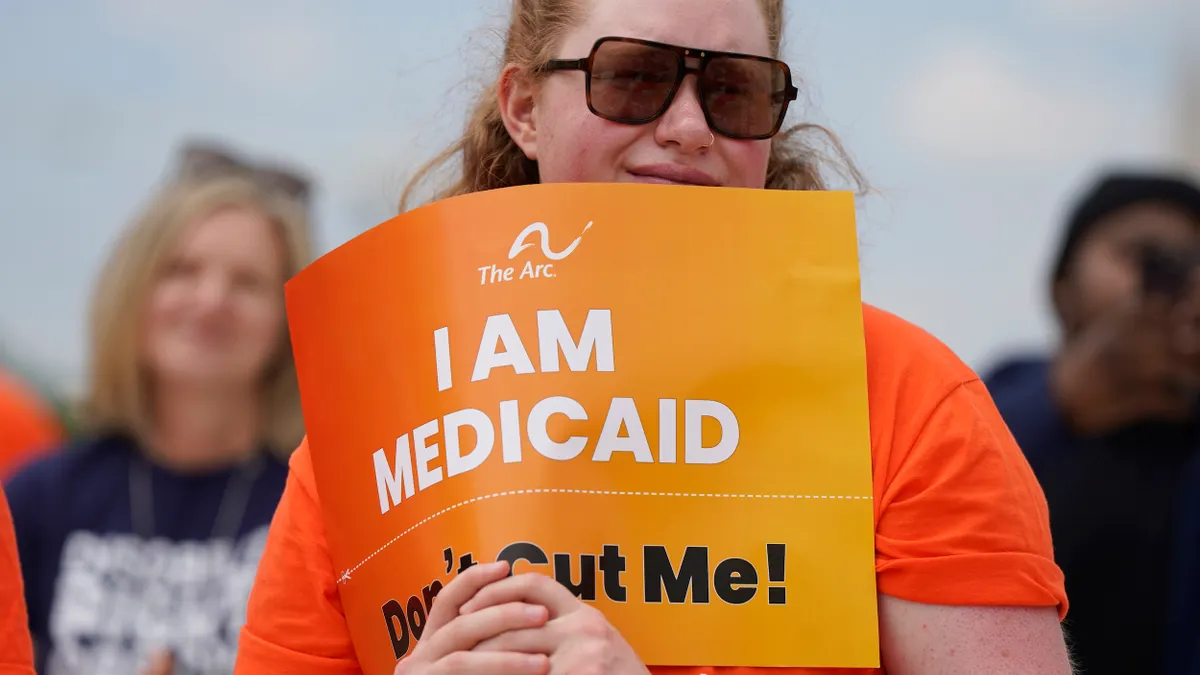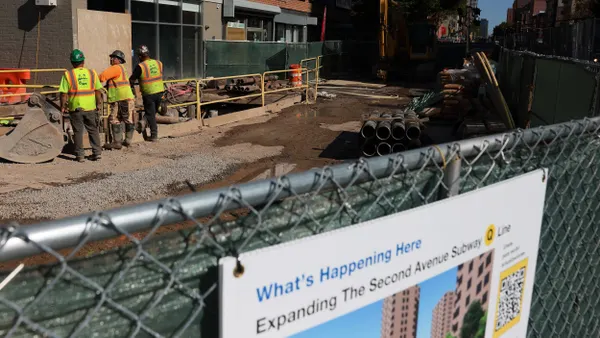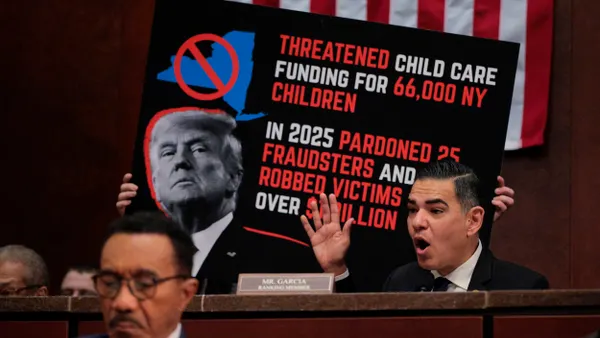Dive Brief:
-
The U.S. House Energy and Commerce Committee begins a marathon session today to advance a budget bill draft proposing at least $880 billion in spending cuts, mostly from Medicaid.
-
The legislation would reduce the number of people with health insurance by at least 8.6 million in 2034, according to a preliminary Congressional Budget Office estimate requested by Democrats and disputed by Republicans.
-
On Friday, the U.S. Conference of Mayors sent the Energy and Commerce Committee a letter saying cuts to Medicaid would “jeopardize public safety and the progress we have made in reducing violent crime.”
Dive Insight:
The Conference of Mayors stated that the Medicaid program helps cities fight crime, supporting crisis response and diversion by funding behavioral health and substance abuse treatment, reducing recidivism, providing community-based care for individuals before they reach a crisis point and stabilizing families and neighborhoods. The program also helps prevent homelessness by providing care to people with poor health and limited access to care, a primary cause of homelessness, the letter states.
“Please bear in mind that the Medicaid cuts and eligibility changes you are considering will limit the ability of our police officers to focus on violent crime,” the letter states. “Medicaid cuts will exponentially increase the instances of officers responding to people suffering from mental health crises, substance abuse addiction, housing instability, and more.”
Scranton, Pennsylvania, Mayor Paige Cognetti, who joined a coalition of mayors for a Capitol Hill fly-in to engage with representatives on issues critical to cities earlier this month, said the mayors emphasized Medicaid’s importance to local communities during their meetings. “We need to make sure that we’re at the very least maintaining, if not growing, the programs that keep our residents healthy and safe,” she said.
Researchers have found that expanding Medicaid is linked to lower crime. Expanded Medicaid coverage under the Affordable Care Act experienced a 5.3% reduction in annual reported violent crime rates, according to a study published in the Journal of Policy Analysis and Management. Another study published in The Journal of Human Resources shows that individuals who had increased Medicaid eligibility during childhood had significantly fewer arrests for property crime, drug-related crime and driving under the influence in early adulthood.
In Tennessee, crime rates increased by almost 17% two years after a substantial Medicaid disenrollment in 2005, the National Bureau of Economic Research found. “Losing Medicaid induced changes in economic standing, housing stability, healthcare use, and health, all of which are documented to be determinants of crime,” the authors wrote.
The American Hospital Association warned the proposed cuts could lead to hospital closures. “These proposed cuts will not make the Medicaid program work better for the 72 million Americans who rely on it,” AHA President and CEO Rick Pollack said in a press release. “Instead, it will lead to millions of hardworking Americans losing access to health care and many of our nation’s hospitals struggling to maintain services and stay open for their communities.”











